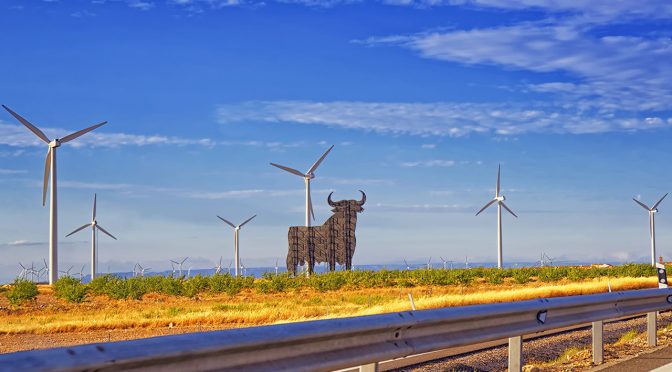In the world, there are more than 12 million jobs dedicated to renewable energies. In Spain, the wind sector employs more than 30,000 people and this figure may exceed 67,000 jobs in 2030.
The development of offshore wind power in the world means that the demand for professionals in this technology will triple by the end of this decade, increasing to 900,000 jobs from the current 300,000.
In Spain, the number of annual jobs in offshore technology for the period 2025-2050 will grow gradually and will range from 7,500 jobs per year during the period 2025-2030 to 17,500 in the period 2045-2050.
This new edition of #WindTalent has today brought together different representatives of HR, Talent and Training from companies in the wind sector, to analyze the challenges and opportunities in job creation and talent attraction offered by the development of offshore wind power in Spain, which is consolidated as one of the main sources of employment and with greater growth and solidity in the energy sector, thus contributing to the economic recovery of our country and the Energy Transition.
WindTalent, a conference organized by the Wind Energy Business Association (AEE) in collaboration with the School of Industrial Organization (EOI), was born 4 years ago as a forum to share talent and employment prospects between the wind energy sector, the Administration, the educational institutions, the selection consultants and the people who wanted to work in the wind power sector. The objective is to find consensus on the challenges that must be faced and build recommendations among all.
WindTalent has focused on the analysis of employment and training needs in the world of offshore wind power. According to data from IRENA, the International Renewable Energy Agency, there are more than 12 million jobs dedicated to renewable energies in the world. In Spain, the wind sector alone employs more than 30,000 people and this figure could reach more than 67,000 jobs in 2030.
For the development of offshore wind, specifically, the demand for personnel will triple by the end of this decade, increasing to 900,000 jobs from the current 300,000 in the world. The installed capacity of offshore wind power will reach more than 110 GW by 2025 and 250 GW by 2030, which will require a large number of qualified employees.
The new jobs relate to the development, manufacturing, construction, installation, and operation and maintenance of offshore wind farms. Construction and development jobs are expected to account for the majority of employment over the next decade. Meanwhile, operation and maintenance jobs, driven by the installed capacity of wind farms, will account for around 12% in 2025. By 2030, wind turbine manufacturing will continue to create the largest share of jobs, accounting for 54% of the total.
In Spain, the impact that this industry will have on employment -by reaching the objectives of new offshore wind power established for 2050, the number of annual jobs for the period 2025-2050 will grow gradually and will range between 7,500 jobs per year during the period 2025- 2030 to 17,500 in the period 2045-2050.
Juan Virgilio Márquez, general director of AEE, highlighted at the opening of #WindTalent that “Spain has the complete value chain of the offshore wind sector and has the opportunity to become an industrial and technological development hub, especially in floating technology . This will make it possible to contribute to achieving the energy and climate objectives established by the country, implying a positive macroeconomic impact derived from the creation of qualified employment, the increase in exports and the growth of the national GDP”. Offshore wind power will generate highly qualified employment. “These jobs will be added to those that the wind power sector itself has been consolidating year after year in activities other than offshore wind power”, indicated Márquez.
At the opening of the day, we have had the participation of Carmen Páez, General Secretary of the School of Industrial Organization (EOI), who has highlighted the important role of academic institutions for the development of future talents and workers in strategic sectors such as offshore wind.
Next, Cristina Vázquez Blanco from the Service for Adaptation of the SEPE Training Offer, has analyzed how the profiles and skills demanded by the Energy Transition will change.
The sessions have analyzed the essential skills that companies are looking for in the selection of professionals, as well as the future challenges and guidelines that we must follow to generate employment and attract professionals to the sector, the new ways of working and the different environments , among other matters.


